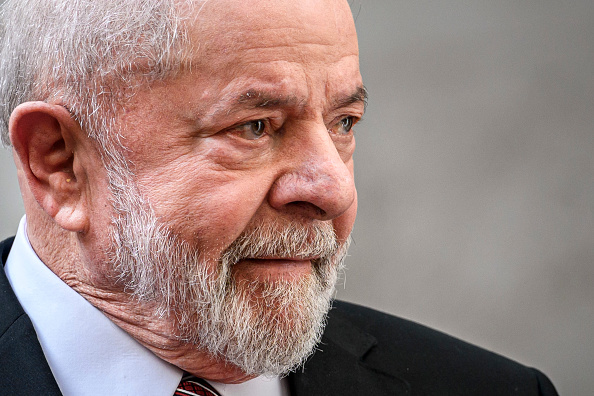This week all eyes have been on the BRICS summit taking place in South Africa. After the Russian embassy in Kenya announced the possible creation of a BRICS currency backed by gold, this meeting warranted attention.
Alas, the dreams of a new currency replacing the Dollar and seeing the end of economic dominance by the West will not find their fulfillment anytime soon. India and others have already rejected the introduction of a new currency. The idea seems to be more popular among the anti-American crowd in the West than the actual countries at the core of BRICS – Brazil, Russia, India, China, and South Africa.
Despite significant improvements in GDP at purchasing power parity, the BRICS nations are still lagging Western nations and the G7 by a wide margin in GDP per capita.
The ideological and emotional appeal to replace the currency of the “Yankees” might be strong in capitals from Moscow to Beijing, but the economic reality is rather different.
No country or alliance of countries currently equals US economic power to absorb the trading surpluses that most developing countries need to run in order to grow their economies, as they tend to have weak domestic consumption.
Being the provider of the global reserve currency has its advantages, but as the economist Michael Pettis has been tirelessly explaining, it also comes with a significant burden – such as running trade deficits and having negative consequences for the US working class.
Yet this does not mean one should entirely ignore all aspirations to create an anti-American trading block. We should ask where Europe could find itself in such a scenario.
There seems to be the belief on part of many policy makers within the EU that in a world of growing tensions between the US and China, the Europeans could chart a neutral path and remain on good terms with all parties.
Such a view is dangerously naive. As the Balkan Wars in the 90s and the war in Ukraine right now demonstrate, the European Union is too weak to stand on its own as a geopolitical power. But it is also too important to be ignored in a bifurcating world.
This means that neither China nor the US will accept a neutral Europe and apply pressure accordingly. This not only applies to Europe: After India’s Prime Minister Narendra Modi visited the United States in June, the world’s most populous country changed its tune on a common BRICS currency, and Mexico’s President Andres Manuel Lopez Obrador recently announced that his country will not apply for BRICS membership and instead deepen its cooperation with the United States.
Sooner or later, Europe will have to face a similar decision. There are many ties, that connect the United States and Europe. But no one in Brussels, Berlin, or Paris should make the mistake that Washington will put Euro-sentimentality over its own national interest.
It is still unclear who was behind sabotage of the Nord Stream 2 pipeline, but the very possibility that the United States were involved shows the determination of Washington to keep the Europeans in their orbit.
The question is, why resist? There is a lot of lamenting that Europe is becoming a vassal of the United States, but the reality is more complicated. In many areas from national defence to popular culture to digital services like Google or Amazon, Europe has relied on the US for decades now.
It is a bit ironic to complain about being a vassal state and then – like Germany a few days ago – pull off a complete U-turn on promised defence spending, because Berlin believes that its military needs will be covered by the US anyway.
Similarly, European economies have slept through almost every major innovation of the last thirty years, and now there are complaints about the growing economic gap.
Europe likes to speak loudly but has no stick, and if one is needed it is up the Washington to wield it. Europe once had great powers in its own right, but those days are gone and the rest of the world knows it.
So, what would be the best possible option for the decades to come? Despite the excitement of the anti-American crowd about the – often announced yet never materialized – imminent demise of the United States, nobody really believes that in a multipolar world Europe would be an independent pole or align itself with China and Russia.
After all, the US-led world order was enormously profitable for the Europeans, and American largesse allowed the creation of welfare states and social safety programmes never before seen in history.
Areas where Europe fell behind were not caused by a US conspiracy, but by domestic complacency. Nokia was once the world’s major producer of cell phones, but they missed the boat on smartphones. The US embraced fracking, the Europeans banned it. The US still attract the world’s smartest people to their world class universities, while Europeans have opened their borders to people of vastly different cultural backgrounds that are hard to assimilate. We barely have any top universities left as well.
All of this is self-inflicted and could be altered with sufficient political will, but the required cultural and civilisational confidence drained from the old continent years ago. Europe is like Greece before the Roman conquest: Fading memories of greatness, but ultimately the best way to preserve its heritage was to accept Roman superiority and adapt to it.
I do not think there would be any shame if Europe should decide to be Athens to Washington’s Rome. This is a far more realistic and sustainable proposal than the idea of a future EU as a global power.






